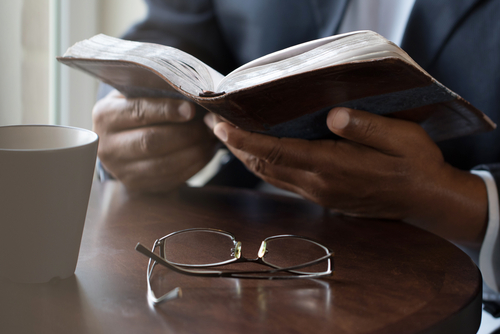My recent experience of a COVID-induced quarantine during my first bout with this highly unpleasant disease got me thinking that, along with other purposes, the experience might be God’s way of giving me an opportunity for what I have begun to call a COVID retreat. Other people have probably had the same idea and had it earlier, and if so I am happy to add my two bits to a worthy cause.
I don’t know whether COVID came out of a bat cave or a Chinese laboratory, but however it started, I’m sure it didn’t escape God’s attention. God knew it was there, and from the start he had a way of fitting it into his providential plan.
In saying this, I am not suggesting that God sent me or anybody else this nasty illness as punishment for sin or a message to shape up. But without getting way out of my depth in a discussion of divine causality, I see no reason why God mightn’t have permitted natural factors to combine in COVID so that I would make better use of this spell of forced inactivity than watching daytime TV, aimlessly browsing the internet, and reading nearly everything except the food section in the daily paper.
In short, I concluded that God very likely wanted me to spend at least some of my time in COVID lockdown doing a bit of serious thinking — call it meditation, if you like — along with a leisurely period of prayer. In short, I concluded, God was inviting me to make a COVID Retreat.
Except possibly for the name, there is nothing new or unusual about this idea. Due to the quarantine, it’s impossible for people with active COVID to get to Mass. But, as will no doubt have occurred to other folks, there are many other things that can and should be done.
So, COVID sufferers, start your day with 10 minutes spent reading the Bible. I suggest the Gospel of Mark, which is the Gospel being read at Mass this year. You can use the passage that is part of the day’s liturgical readings (available on the website of the Catholic bishops’ conference, usccb.org). Or you can simply start reading the Gospel from the start, a chapter or two each day. Mark is the shortest of the Gospels and it is clear, simple, and direct.
Second, spend 20 minutes or so thinking about what you’ve read and considering how it applies to you and your life. Take the occasion to speak directly to God, asking for enlightenment, expressing regret for the ways you fall short, thanking him for his help.
That should be enough for the morning, although you’re certainly welcome to do more if so inclined. In the afternoon, I suggest two more things.
First, say the Rosary. Monday, joyful mysteries. Tuesday, sorrowful. Wednesday, glorious. Thursday, joyful. Friday, sorrowful. Saturday, luminous. Sunday, glorious. Pause at the start of each mystery and get it fixed in your mind what it’s about before proceeding.
Second, do some spiritual reading. I suggest Caryll Houselander, St. Josemaría Escrivá, or St. John Henry Newman. Newman can be a bit heavy going but the content is rich in doctrine.
And before bed, a brief examination of conscience — two-three minutes, not more.
Many of you are already doing these things and probably a lot else. Congratulations.
Others may not be so far along. A COVID retreat could be God’s way of getting started. Don’t tell me COVID has no useful purpose.

